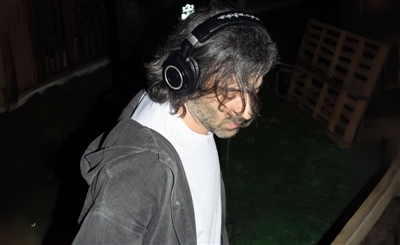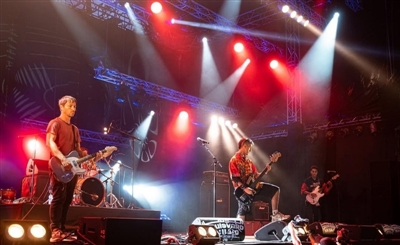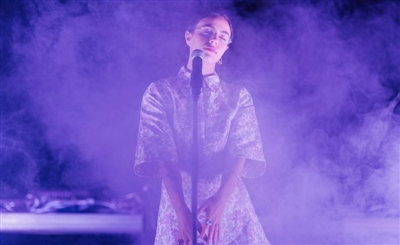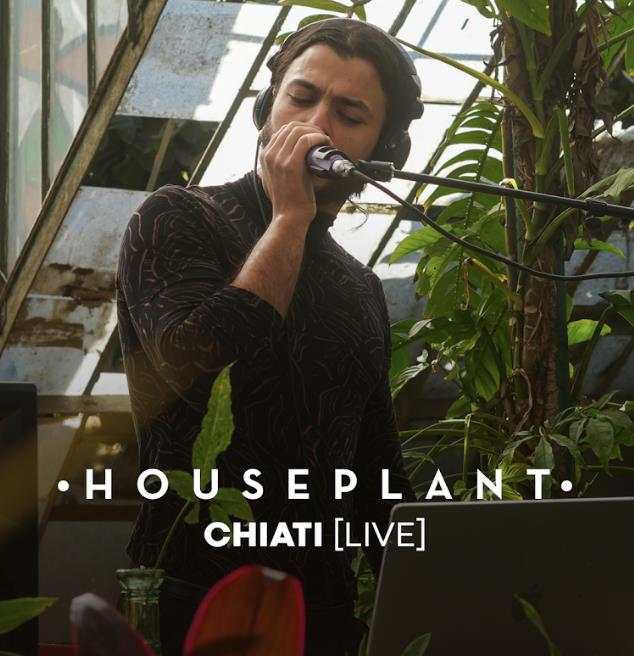Bethlehem's Wonder Cabinet Opens Call For 10-Week Learning Programme
From October to December, the cultural hub home to Radio al Hara will host a learning programme with Jordan's Spring Sessions rooted in cultural and creative exchange between Amman and Bethlehem.
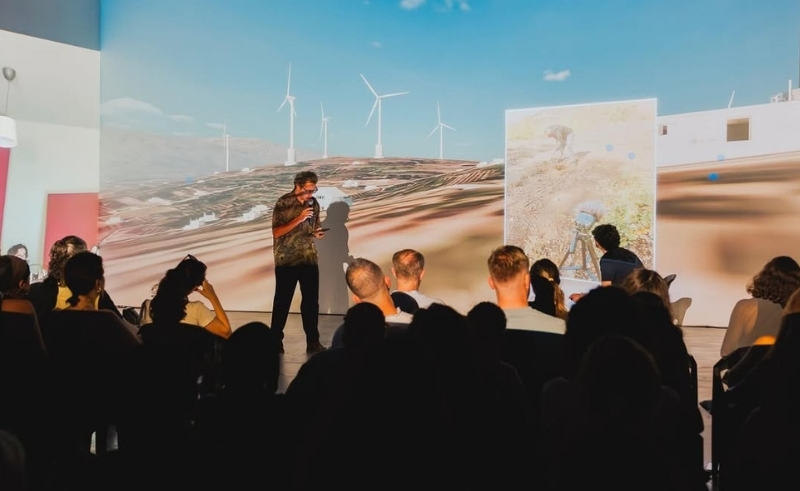
Bethlehem’s culture and production center Wonder Cabinet announced an open call for a 10-week learning programme for artists and cultural practitioners. The artist hub is home to Radio al Hara, the Covid-born station that runs 24/7.
Jordanian collective Spring Sessions will facilitate the programme, titled “Spring Forward, Fall Back”, which will run between October and December. They are looking for artists, curators, and cultural practitioners to participate in its learning modules and public programming. The fellowship is rooted in exploring the relationship between Palestine and Jordan through artistic exchange and collaboration.
Applications are due August 31. Spring Sessions will accept a maximum of 12 participants, giving priority to art students and emerging artists based in Palestine and Jordan. However, the programme is open to anyone regardless of age or nationality. This is the first time Spring Sessions will hold their programme in Palestine. They are coming back for the first time since Covid, where from 2014 to 2019, they engaged with over 150 artists inside and outside of the region in workshops, exhibitions, and collaborative projects.
Wonder Cabinet Producer Ibrahim Owais explained that the center was created in May 2023 as a place to host residencies, educational and cultural programmes. In any given season, the center runs multiple initiatives and hosts fellows everywhere from Greece to India to South Korea. Among these fellowships is ‘Sounds of Places’, dedicated to the disappearing rituals and cultural sounds inhabiting the Palestinian landscapes and heritage sites, and the ‘Sound and Bar Residency’, which invites project proposals across a number of community building and creative themes. In its third season, collective Spring Sessions won the Fall 2025 Sound and Bar Residency.
Owais anticipates that Spring Sessions will collaborate with the other fellows hosted by the Wonder Cabinet this fall. While the center has successfully hosted many creatives in the past two years, running residency programmes under Israeli occupation it is not without its challenges.
“Not everyone can obtain a visa to come to Palestine,” Owais said. One of the largest obstacles to their residencies is ensuring fellows can reach their final destination of Bethlehem. Beyond the obstacles they will encounter upon arrival to the West Bank - checkpoints, settler violence, and constant road closures - entering Palestine, either through the Ben Gurion Airport in Tel Aviv or King Hussein Bridge via Jordan, is a difficult process on its own.
“Ater the war, everything changed. It became much harder to obtain these visas, because if you want to come to the West Bank, you have to obtain a visa from the Israeli embassy,” he added. This makes it easier for Palestinians who also have foreign passports, such as European or American, to participate in the residency programmes.
Owais mentioned, for example, British-Palestinian dance artist Sasha Shadid who participated in the 2024 Sounds of Places residency. Shadid, originally from Haifa, had never been to Palestine before. As part of his residency, he produced an original sound and dance performance titled “Faster-than-light, always,” in collaboration with Palestinian creatives.
The piece, per its YouTube description, spoke to “the aesthetics of the Cremisan Valley in Palestine [which lies between the West Bank and Jerusalem] and the way the occupation forces have been using the last green space around Bethlehem to further suffocate its community. The performance uses the body as a medium for claiming the land, celebrating its ample and smooth curves, its terraces and the bearing trees it cradles.”
Motion is also a theme central to Spring Sessions.
“The project seeks to navigate the tension between forward motion and reflective return in the face of ongoing Nakba, ecological collapse, and cultural and ethnic erasure,” the collective wrote on their open call for participation.
“Our gathering at the Wonder Cabinet is rooted in the connection between Bethlehem and Amman, two places historically intertwined through routes of pilgrimage, trade, exile, and return,” they continued. “This relationship, shaped by movements across Bilad al-Sham and its neighboring geographies, forms the ground from which we come together to think, study, and make.”
Owais named the difference between Amman and Bethlehem as one of space. In Palestine, cities are less connected because of the geographical barriers imposed by Israeli occupation. He describes the West Bank as a collection of cities separated from each other with distinct sub cultures. Ramallah is different from Nablus which is different from Bethlehem. In Jordan, on the other hand, people have freedom of movement, allowing for cultural unification.
Through Spring Sessions time at Wonder Cabinet, he hopes to see the network expand between Palestinian and Jordanian communities.
You can apply for Spring Sessions here.
- Previous Article Nour Returns With Coming-of-Age 80s Pop Single ‘Zay Mana’



